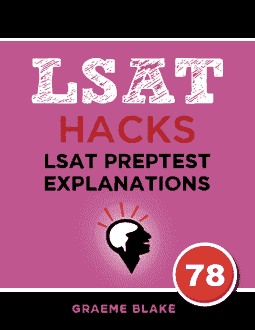DISCUSSION: In these title relationship questions, you need to have a good sense of each author’s attitude.
- Author A thinks jury nullification is entirely bad.
- Author B thinks nullification is generally good, and can help achieve the goals of the law
(e.g. line 43 “assisting the legislature”)
___________
- The first part seems good, but it doesn’t match. The “?” indicates uncertainty. But author A was very sure jury nullification was bad.
Likewise, author B wasn’t discussing pros and cons. They like nullification, and didn’t mention downsides to allowing it. - The first part is too neutral. Author A wasn’t summarizing a debate. They’re part of the debate, and are arguing against jury nullification.
- CORRECT. This matches. See the two bullet points above. Here, the first title suggests TV cameras are entirely bad. The second title suggests cameras are good and will help the law.
- The good/bad split of these titles is correct. However, the first title talks about the history of TV cameras, whereas passage A was about whether we should allow nullification to exist.
Passage B wasn’t about the motives behind nullification. You can have good motives, but bad results. Passage B argued that the results of nullification were good. - The first title is good. Technically, the author of passage A didn’t call for a ban on nullification, but it’s implied.
The second title is wrong. Inevitable doesn’t mean good or bad. You could think something bad was inevitable. But passage B argued that nullification was good, and further they didn’t say whether or not it could be avoided.


Leave a Reply